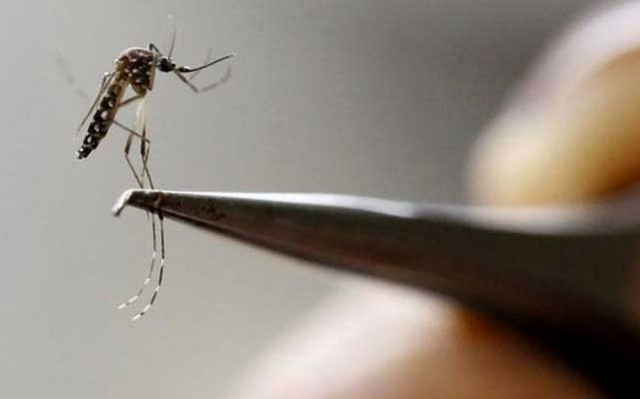The perfect crime foiled by... a mosquito
Human blood extracted from a mosquito can be traced back to its original owner till up to 48 hours

PHOTO: REUTERS
But if a mosquito bit our cocky assassin at the crime scene, it could one day lead to a conviction, according to study published Monday in the journal PLOS ONE. That is because researchers at Nagoya University have shown that human blood extracted from a buzzing bloodsucker can be traced back to its original owner up to 48 hours after a skeeter has siphoned it off.
Climate change amplifying malaria risk
"This technique can help police work out who was at a crime scene. In the future, it might provide evidence that can be used to convict offenders," lead scientist Toshimichi Yamamoto said.
No one knew how long human blood drawn by a mozzie kept an identifiable DNA profile, so Yamamoto and a team of forensic scientists decided to find out. They recovered blood from mosquitos who had bitten volunteers, and then used a technique called polymerase chain reaction - PCR for short - to examine it. PCR is a standard tool in forensics for amplifying a tiny DNA fragment up to thousands of times.
The researchers found that they could accurately match the minuscule blood traces to the volunteers who had offered themselves up as a meal, even after two days of digestion in a mosquito's stomach. After three days, however, the blood completely broke down.
Dengue returns with a vengeance
The experiments were performed with two species, Culex pipiens pallens and Aedes albopictus, both found throughout much of the tropical and sub-tropical world.
"We hope this will help crime scene investigators collect reliable evidence," Yamamoto said.
With further research, he added, it might be possible to accurately estimate when a mosquito plunged his syringe into its victim. Most mosquitos do not travel beyond a radius of a few hundred metres and, depending on the species, have lifespans ranging from a few days to a couple months. Females - the ones that bite - generally live far longer than males.



















COMMENTS
Comments are moderated and generally will be posted if they are on-topic and not abusive.
For more information, please see our Comments FAQ